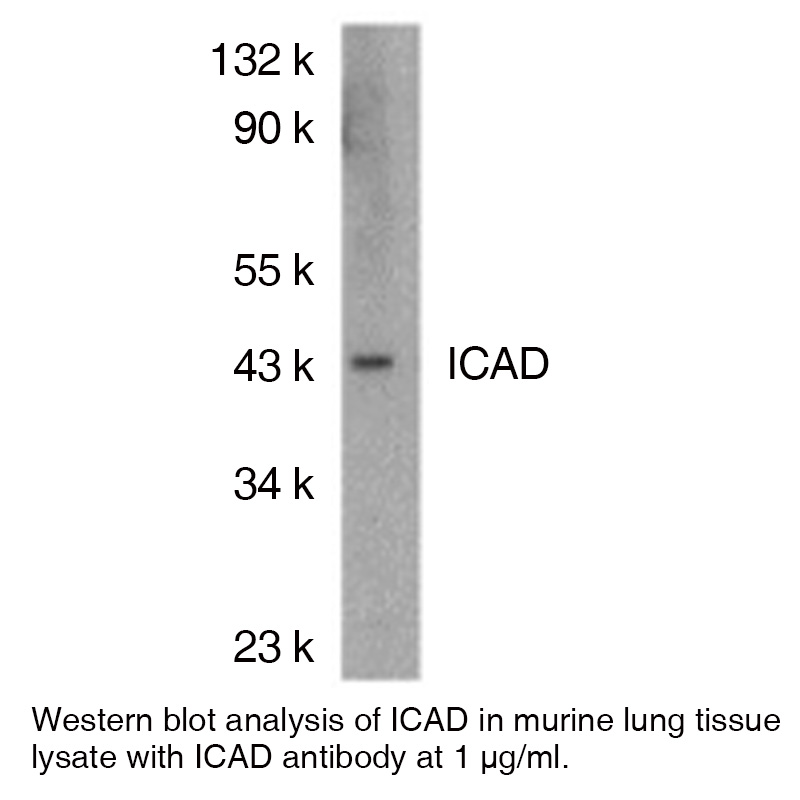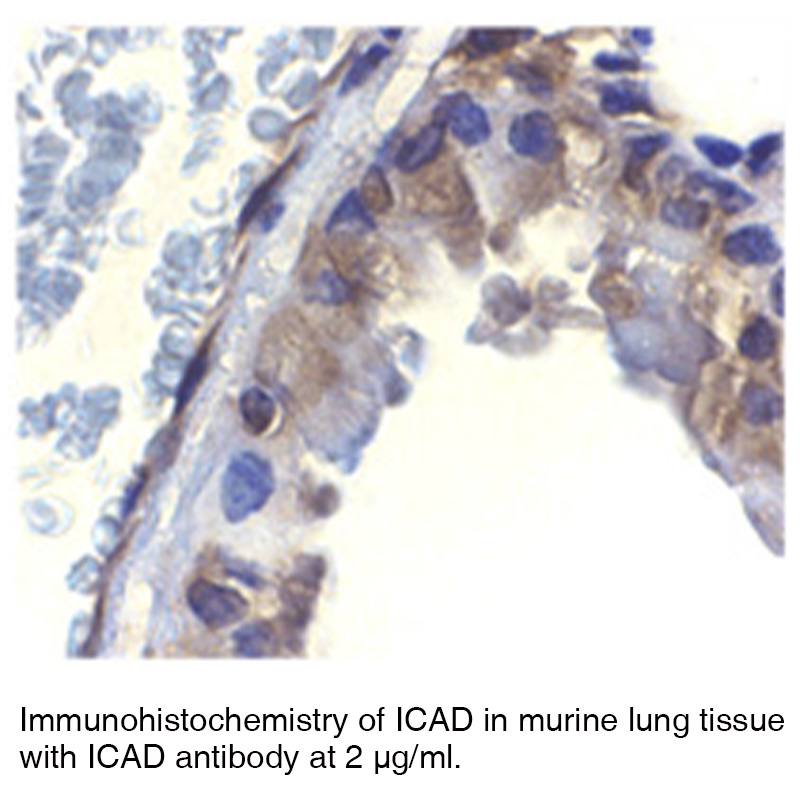Anti-Mouse ICAD (NT)
Data
- -
- -
Antibody DetailsProduct DetailsReactive Species Mouse Host Species Rabbit Immunogen PN:I-326 Product Concentration 0.5 mg/ml Formulation This polyclonal antibody is formulated in phosphate buffered saline (PBS) pH 7.4 containing 0.02% sodium azide as a preservative. Storage and Handling This polyclonal antibody is stable for at least one week when stored at 2-8°C. For long term storage, aliquot in working volumes without diluting and store at –20°C in a manual defrost freezer. Avoid Repeated Freeze Thaw Cycles. Country of Origin USA Shipping Next Day Ambient RRIDAB_2830632 Each investigator should determine their own optimal working dilution for specific applications. See directions on lot specific datasheets, as information may periodically change. DescriptionDescriptionSpecificity Rabbit Anti-Mouse ICAD recognizes an epitope near the N-terminus of Mouse ICAD. This polyclonal antibody was purified using affinity chromatography. Background Apoptosis is related to many diseases and induced by a family of cell death receptors and their ligands. Cell death signals are transduced by death domain containing adapter molecules and members of the caspase family of proteases. These death signals finally cause the degradation of chromosomal DNA by activated DNase. A human DNA fragmentation factor (DFF) was identified recently which is cleaved by caspase-3 during apoptosis. Mouse homologue of human DFF was identified as a DNase inhibitor designated ICAD, for inhibitor of caspase-activated DNase. Upon cleavage of DFF/ICAD, a caspase activated deoxyribonuclease (CAD) is released and activated and eventually causes the degradation of DNA in the nuclei. Therefore, the cleavage of CAD inhibitor molecule DFF/ICAD, which causes DNase activation and DNA degradation, is the hallmark of apoptotic cell death. PubMed References & Citations1. Liu, X. et al. (1997) Cell 89:175-184 2. Enari, M. et al. (1998) Nature 391:43-50 3. Sakahira, H. et al. (1998) Nature 391:96-99 4. Wyllie, A. (1998) Nature 391(6662):20-1. Technical ProtocolsCertificate of Analysis |




